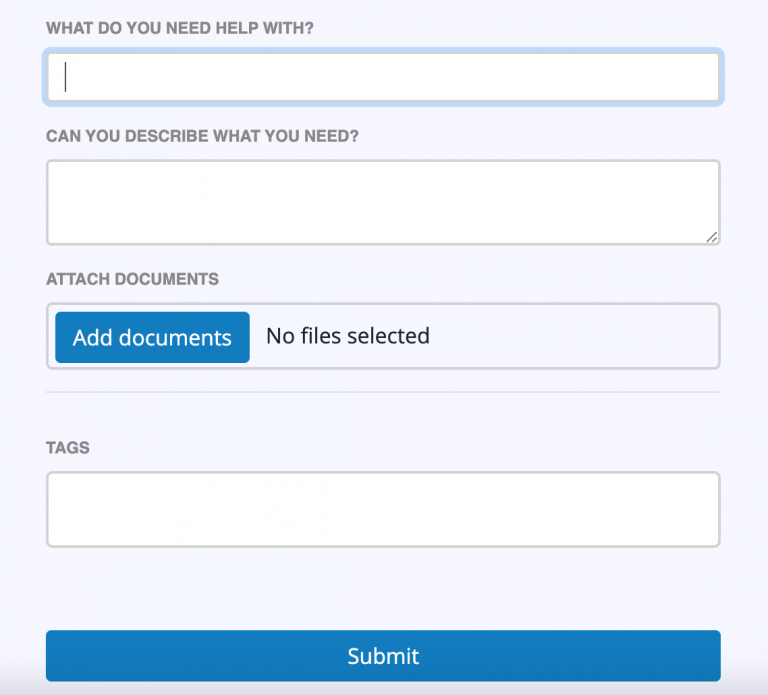
A legal intake system to manage incoming legal work can help legal teams move away from the potentially chaotic scenario of work requests flying in via a myriad of channels, including email, phonecalls, slack or Zoom and with varying levels of information (and disinformation) upon which lawyers need to piece together a contract or piece of advice.
Legal Intake forms can form the basis of a legal front door which legal teams are increasingly using to channel work requests via a single organised system. If set up an managed well, the results can be dramatically improved client experience as well as giving lawyers data driven workflows with which to streamline operations and demonstrate legal team value.
Intake forms can ensure that clients have properly considered a legal request, followed internal policy and given lawyers the correct information needed to help complete the piece of work efficiently. They can be used and configured for contract review, compliance issues, legal questions, customer claims and complaints – in fact just about anything.
So what is the recommended approach to creating legal intake forms and what information should lawyers request from their clients in these forms? At Tabled we see inhouse legal teams and law firms adopt all kinds of different approaches, from favouring very simple forms which don’t require any thinking from clients to much more detailed intake forms, intentionally ensuring that clients have done plenty of legwork before coming to the legal team. The approach will of course depend on the culture of the law firm or company and legal team that you work for, the type of work that a form is capturing and what the data objectives are.
You are not limited to a single intake form and clients can be directed to clearly signposted forms for different types of work – so it would be typical for a legal team to have separate forms for contract review requests and customer claims for example.
In this example, which is the unedited default form in Tabled, the legal team leave the form completely open to be interpreted by the client and don’t try to extract too much information.
Pros
Cons

Detailed legal intake form
A detailed contract review intake form could include multiple fields such as:
Pros
Cons
Legal intake forms provide a flexible approach to channel requests for legal support and for obtaining the information that lawyers need to complete work easily while extracting valuable data. The platform behind the intake forms is also important to ensure the legal team can assign and track the work and workflows and understand key data.